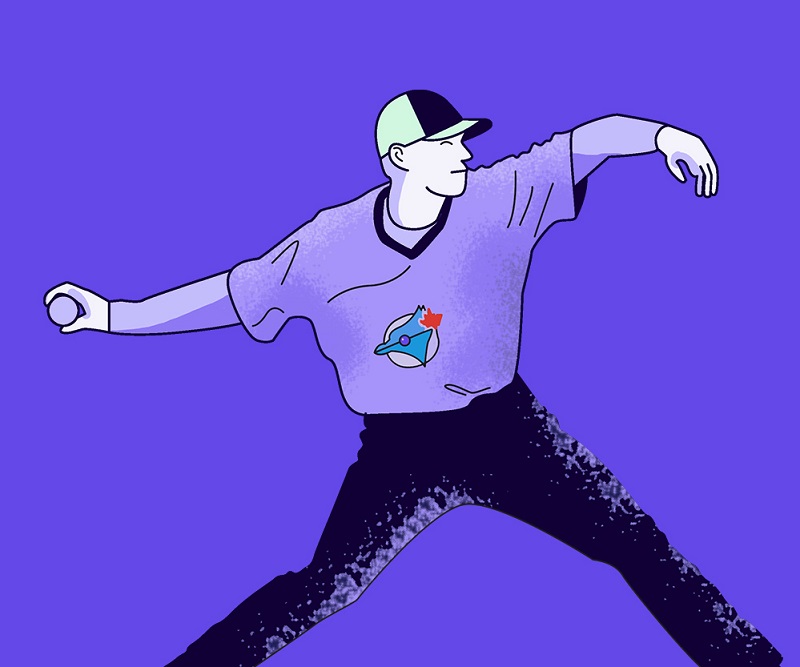Former Blue Jay goes into Hall of Fame as one of the greatest in franchise history
The 2019 Baseball Hall of Fame class was announced on Jan. 22. Among the legendary names that will be inducted in Cooperstown, New York in July, one name stands out to Canadian baseball fans.
The late Roy “Doc” Halladay (1977-2017) spent 11 of his 15 full seasons as a Toronto Blue Jay, winning 148 games. He also won a Cy Young Award as the American League’s best pitcher in 2003. He made an impact whether he was playing or not.
Jackson Morgan, a pitcher for the Concordia Stingers baseball team, looked up to Halladay. “He was a huge role model for me growing up,” Morgan said. “What made him a role model wasn’t necessarily his performance, but his [behaviour] on and off the field.”
On the field, Halladay was known for an assortment of pitches, and his command of the strike zone was one of his most notable skills. Growing up playing baseball, Morgan learned how to create more movement on his pitches by watching Halladay play. “I can remember watching him dominate and thinking to myself: ‘If I was a batter, I’d be helpless as well,’” Morgan said.
Halladay’s impact on Canadian baseball fans is in the same scope as former Blue Jays Joe Carter, Jimmy Key and fellow Hall of Fame member Roberto Alomar, who were the Blue Jays’s first stars. Danny Gallagher, a former reporter who covered the Montreal Expos, believes Halladay is one of the most successful Blue Jays of all-time. Like Morgan, Gallagher also believes Halladay had an impact on youth players in the country.
The Blue Jays weren’t a good team from 1998 to 2009, when Halladay was pitching for them. The Jays never made the playoffs, despite masterful performances from Halladay. Morgan wished that Halladay would have seen some better chances to win.
“I only wish they had a better supporting cast for Doc during his tenure with the Jays,” Morgan said. Halladay only played playoff baseball twice, in 2010 and in 2011, as a player for the Philadelphia Phillies. There, he continued to dominate, and in 2010 against the Cincinnati Reds, he became only the second pitcher after Don Larsen in 1956 to throw a no-hitter in the playoffs.
Players inducted into the baseball Hall of Fame choose which of their former team’s logos is inscribed on the cap of their plaque. Halladay’s family requested to not have a logo on his plaque. Despite this, Gallagher said he will be forever linked with Toronto baseball.
“The Blue Jays will always consider Doc one of the greats in franchise history,” Gallagher said. Even without the Blue Jays logo on Halladay’s plaque, his legacy as a Blue Jay will remain on the minds of all Canadian baseball fans.
The same was echoed by Morgan, as what he saw from Halladay’s play as a young baseball player will be forever remembered. “His legacy will live on forever. I’m thankful he played for a Canadian team and young Canadian pitchers like myself had exposure to such an influential and important baseball figure,” Morgan said.
Main graphic by @spooky_soda.
